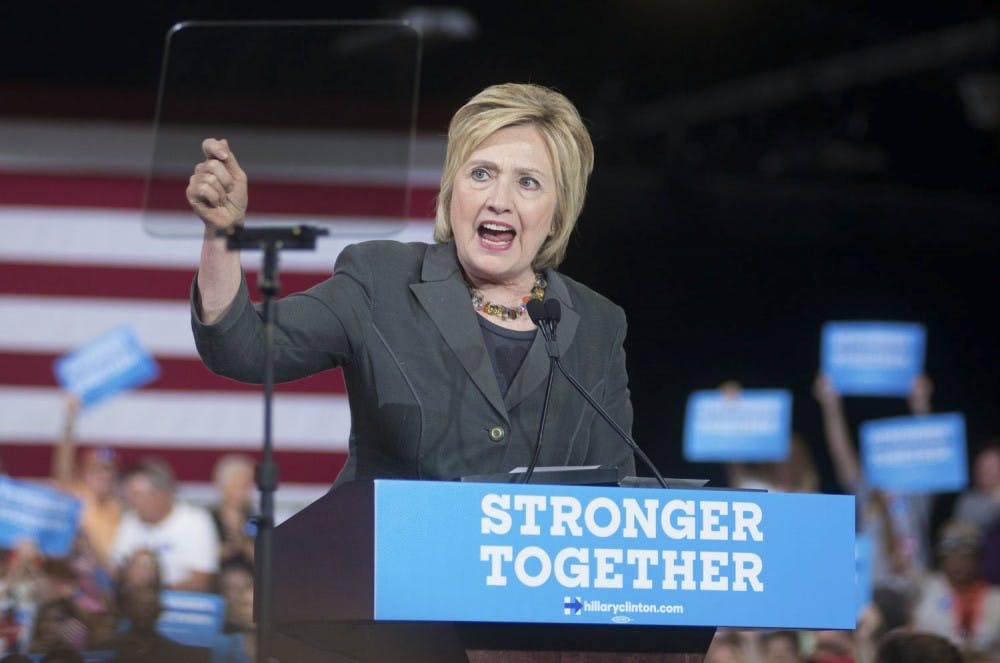Hillary Clinton is ahead of Donald Trump in North Carolina after the first Presidential debate, according to an Elon University Poll conducted from Sept. 27 to Sept. 30.
The Elon University Poll is an academic, non-partisan survey which seeks to measure issues, policies and candidate status.
“The mission is to provide public opinion information to the state,” said Jason Husser, director of the Elon University Poll.
The full report shows Clinton, the Democratic nominee, ahead in North Carolina by 6 percentage points, with 44.5 percent of the vote. Trump, the Republican nominee, is polling at 38.7 percent.
The poll attributes Clinton's lead to the results of the first presidential debate. The majority of participants in the poll who watched the debate, 64 percent, believed Clinton won the debate.
The poll also shows Clinton has a significant lead among black voters, with 98 percent indicating they plan on voting for her in a two-party vote.
However, Clinton's lead could change in the swing state, Husser said.
He said although polls tend to be very accurate, the public should interpret polls as estimates.
“People should take the margin of error into account and then realize that there are probably a few extra points of error here and that they are just due to the realities of surveys," he said.



